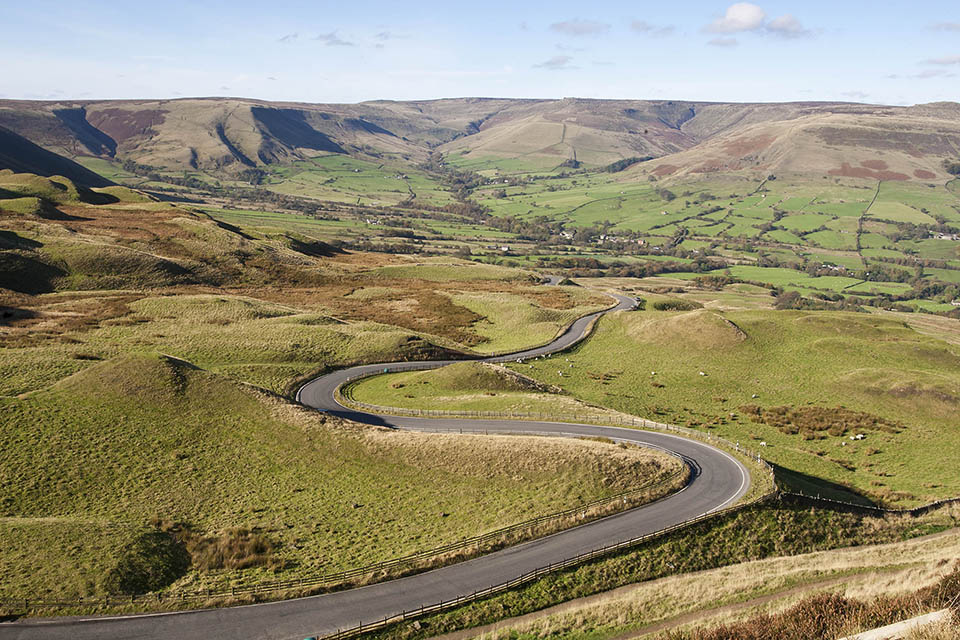Draft Environment (Principles and Governance) Bill 2018 policy paper
Updated 23 July 2019

Our vision: World-leading law for a greener future
The Environment Bill will put environmental ambition and accountability at the very heart of government. It will help us make good on our commitment to leave the natural world in a better condition than we found it, and create a new environment body to make sure that we succeed. Around this new green governance, it could take direct action to address the biggest environmental priorities of our age: air quality; the protection and enhancement of our landscapes, wildlife and habitats; more efficient handling of resources and waste, and better management of our surface, ground and waste water.
This government is the first to commit to leaving the environment in a better state than we inherited it. In our 25 Year Environment Plan, published in January 2018, we set out our long-term approach to protecting and improving the natural world – our natural capital.
The Environment Bill, announced by the Prime Minister in July, will be an essential step. Through the Bill we will make the statutory changes needed to implement our new approach, and enshrine in law a transparent series of checks and balances to map our progress towards our goal.
Following the consultation document on ‘Environmental Principles and Governance after the UK leaves the EU’ published in May 2018, we have now published a draft version of the corresponding clauses of the Environment Bill. This paper sets out the broader ambition of the Environment Bill, which will cover environmental principles and governance alongside four other key areas: air, wildlife, water and waste. More detail on all policy areas has been or will be published in due course.
The Environment Bill plots a course to:
- establish a pioneering new system of green governance
- improve air quality
- restore and enhance nature
- improve waste management and resource efficiency
- improve surface water, ground water and waste water management

The Bill will set a new trajectory for environmental improvement. We recognise that a greener society is essential for national prosperity and for our good health and wellbeing – and it is our responsibility to treat the environment respectfully as an invaluable national asset in its own right.
The new approach set out here acknowledges that the environment is a complex, interlinking system. Where we intervene in one area, there will be multiple knock-on effects elsewhere. Our economically responsible environmental policy framework will provide clear long-term certainty for business and others. The Bill will set an inspirational standard for effective leadership, demonstrating that an enhanced environment does not come at the expense of economic growth: the two go hand in hand.
The Bill will benefit society as a whole by improving environmental protection and restoration, managing the impact of human activity, creating a more sustainable and resilient economy, and enhancing wellbeing and quality of life. This will create a positive legacy for future generations of which we can all be proud.
Our ambitions are not only domestic. Pollution recognises no boundaries and the despoiling of habitats is happening worldwide. We are showing bold international leadership by spearheading environmental action on the urgent issues of our day – including protecting endangered species and tackling the illegal wildlife trade, and addressing the pandemic of plastic pollution in our oceans and landscapes. We want to make sure that we can live well within the Earth’s natural limits. In 2020, there will be new global agreements on climate change and nature. We will ensure that we take the domestic action needed to set our own economy on a sustainable course. The UK has repeatedly shown our commitment to playing our part, and leading the world towards a cleaner, greener future. The Environment Bill will build on this legacy, and the goals we set out in the 25 Year Environment Plan.
Environment is a devolved matter, subject to a small number of areas that are reserved. In consequence, this Bill applies to England and to the UK for reserved matters. Overall, we recognise that protecting the environment is inherently an issue that cuts across boundaries, and we continue to welcome the opportunity to co-design with the Devolved Administrations, should they wish to join any proposals, to safeguard our shared natural environment.
Governance and accountability
At the heart of the Bill are the new foundations it will create for long-term environmental governance and accountability. Our policy of transparency commits us to measuring and reporting on our progress both in public and in Parliament. We will back this up with a regularly refreshed, credible plan of action. The Bill will allow us to take three important steps towards reaching our goal:
1. We will establish a world-leading environmental body, the Office for Environmental Protection (OEP) to champion and uphold standards as we leave the EU
For decades, EU institutions and mechanisms have provided oversight over environmental law. After we leave the EU this will no longer be the case. We will retain our rigorous parliamentary scrutiny and strong domestic legal framework for environmental protection after EU exit – but we want to go further. Establishing the Office for Environmental Protection (OEP) will ensure that this and every future government benefits from the expertise vested in a consistent, long-term, independent body on the environment. The OEP will provide independent and impartial scrutiny, assessments and advice on environmental legislation and the government’s Environmental Improvement Plan (EIP). It will also offer a strong system of accountability, taking enforcement action where needed to make sure that government is delivering on its obligations under environmental law.
2. We will introduce a clear set of statutory environmental principles to guide policymaking
Environmental principles act as guidelines for policymakers to consider how the environment can be improved and environmental harm avoided or minimised. At present, policymakers are informed by environmental principles which are reflected in various international instruments and are set out in the EU treaties. However, a clear articulation of these principles has never been laid out clearly at a national level.
The Environment Bill will change this through requiring the publication of a statutory policy statement on the interpretation and application of the principles, to which Ministers will have a duty to have regard to when making policy. This duty will provide a clear basis to ensure that Ministers are considering the relevant environmental principles when making policy.
3. We will place the flagship 25 Year Environment Plan on a statutory footing
The Plan set crucial changes in motion, but its success depends on sustained action over the next quarter of a century. Placing the current plan on a statutory footing and requiring future governments to develop Environmental Improvement Plans will firmly commit this and future governments to driving forward a positive environmental agenda now and in years to come, creating a strong, long-term, economy-wide incentive for taking action to protect and enhance the environment. The OEP will also have the task of publishing an independent, annual progress report on the implementation of the 25 Year Environment Plan following the government’s annual report.
Overall, the new statutory cycle of environmental planning, monitoring and reporting will incentivise sustained improvement in our natural world and ensure that we deliver our commitments, now and in the future.
In addition, we will explore options for including additional cross-cutting targets for environmental improvement as part of this framework. Well-designed targets could offer greater certainty on the strength of the government’s ambition and drive action by businesses and wider society.

Leaving the EU
The EU (Withdrawal) Act 2018 will make sure existing EU environmental law continues to have effect in UK law after the UK leaves the EU.
It requires that the environmental principles which currently guide EU policy making and development must be set out in UK legislation. The UK government must produce a statutory policy statement explaining how those principles will be interpreted and applied in the making and development of policies.
It also requires the establishment of a public authority which must be able to hold government to account on environmental standards by taking proportionate enforcement action.
We will work to make sure that the OEP is in place as soon as possible in a no deal scenario, with the necessary powers to review, and if necessary take enforcement action, in respect of breaches of environmental law from when the jurisdiction of the Court of Justice of the European Union has ended.
Alongside this, under a no deal scenario we will put in place a holding arrangement during the interim period between 30 March 2019 and the launch of the OEP. This will provide a mechanism for the OEP to receive a report of any perceived or claimed breaches of environmental law made during this interim period. This means that the OEP can consider any early action it may need to take upon its establishment.
The UK-EU Withdrawal Agreement that was endorsed by EU leaders on 25 November 2018 sets out the draft agreement between the government and the EU for the withdrawal of the UK from the EU. This is subject to agreement by the UK Parliament. A Political Declaration setting out the framework for the future economic partnership between the UK and the EU was also published.
As part of the Northern Ireland protocol (sometimes referred to as ‘the backstop’) in the Agreement, the UK and the EU have agreed commitments to maintain fair and open competition within the single customs territory, in the unlikely event that the protocol need ever come into force. These include obligations related to the environment, including a non-regression clause.
The text sets out that, if the protocol is required, the UK and EU will not reduce their respective levels of environmental protection below those in place at the end of the implementation period.
The intended approach of the draft Environment Bill is in line with the provisions of the Withdrawal Agreement concerning environmental principles and the domestic monitoring, reporting, oversight and enforcement of environmental obligations by an independent body or bodies. There are some environmental elements of the Withdrawal Agreement which our current proposals do not cover, namely those concerning the independent body’s scope to enforce implementation of the “non-regression” clause. We will consider these provisions of the Withdrawal Agreement ahead of publishing the final Bill.
Wider ambition of the Bill
Our new environmental policy framework will provide a sustainable foundation for action on today’s biggest environmental issues. We will take further action to tackle biodiversity loss and support thriving plants and wildlife. We will improve our air and our water, creating a healthier environment. We will cut down resource use and waste, reducing our impact on the world while using our raw materials more responsibly and shaping a more efficient, competitive economy.
Poor air quality poses a serious risk to human health, and has a major impact both on the natural world and the state of the economy. The UK has long been determined to improve air quality, having adopted legally-binding international targets to reduce emissions of five key air pollutants by 2020 and 2030. Our tough regulatory frameworks have yielded significant progress – emissions of sulphur dioxide, for example, are now almost 95% lower than in 1990, while nitrogen dioxide emissions fell by almost 27% between 2010 and 2016 and are at their lowest level since records began.
However there is much more to be done. This government’s draft Clean Air Strategy[footnote 1] lays out a comprehensive set of actions to tackle air pollution, setting an ambitious agenda and taking into account World Health Organisation guidelines.
A strengthened framework on air quality is one key aspect of this strategy that will help us deliver benefits for human health, the environment and the economy at national and local level. We will expect central government, local government and other public bodies to drive forward continuous improvement in air quality, focusing on measures that have the greatest benefits for public health. This will include ensuring local authorities have easier-to-use powers to tackle air pollution.
In terms of nature conservation, the Environment Bill will restore and enhance nature, taking a modern approach to creating beautiful, biodiverse places. For too long nature has been in decline at home and abroad, putting wildlife at risk and undermining our economy and our wellbeing. It is not enough simply to preserve our environment: we should also reverse losses suffered in the past, especially over the past 50 years, as set out in our 25 Year Environment Plan. We want to strengthen the ways we provide protection for our diverse habitats and the wildlife they support.
Subject to consultation, we intend to legislate on mandatory biodiversity net gain to ensure that new developments enhance biodiversity and help deliver thriving natural spaces for communities, which can improve human health and wellbeing. We will also consider proposals for conservation covenants, which have the potential to deliver lasting conservation benefits for future generations. We will take targeted action for trees, stopping illegal deforestation and delivering on our manifesto commitment to ensure councils consult if they are removing street trees. This will give the public a greater say in street tree management, helping preserve the natural environment which is so important for our local communities.

We aim to become world leaders in maximising resource efficiency and minimising waste. Our resources are precious, but for years the traditional ‘linear’ economic model of ‘take, make, use, throw’ has led to needless waste piling up, and causing environmental damage. We want to make a historic change, moving towards a circular economy approach that keeps resources in use for longer, thereby realising maximum value from them, and upholding in full the important ‘polluter pays’ guiding principle. Our Resources and Waste Strategy sets out a vision to achieve our major goals: achieving zero avoidable plastic waste, doubling UK resource productivity, and reaching zero avoidable waste of all kinds by 2050.
Saving our valuable resources calls for a more efficient and environmentally friendly approach at every life stage of a product, from manufacture to consumption to disposal. We are exploring an innovative new approach to extended producer responsibility to make producers more accountable for the environmental impacts of their products. Effective recycling is also essential. Household recycling rates in England have not increased significantly for five years, and business recycling levels are low. We need to take action to boost the quantity and quality of recycling, making it easier for consumers and businesses to do the right thing for the environment.
We will tackle waste crime, which pollutes our environment, costs our economy hundreds of millions of pounds each year, and undermines legitimate businesses. This means preventing crime by modernising the regulatory framework; deterring crime by ensuring regulators can take effective enforcement action; and detecting crime using state-of-the-art tools. Litter, like other forms of waste crime, harms community life and causes serious environmental damage in our countryside, rivers and seas. We will consider legislative measures to reduce litter as we work with communities and businesses to implement our Litter Strategy for England.
Managing water sustainably is essential if our environment is to thrive and benefit wildlife and people in the face of a changing climate. We have seen a significant improvement in the water environment and in resilience to flood and drought in recent years. However, we face challenges ahead to restore our waters to as close as possible to a natural state, and to address the risks of increased flood and drought through improving water and flood resilience. The combination of climate change and population growth will make these challenges even greater.
To move forward, we propose to consult on modernising legislation to ensure that water companies and regulators improve the assessment and management of environmental and other risks. We will deliver the commitments made in our 25 Year Plan to achieve clean and plentiful water – and will consult on measures to reduce the damaging abstraction of water from rivers, improve long term planning for drainage and waste water, and improve regional planning for water resources.
Wastewater can also do serious damage to our environment if not properly managed, so we are working with industry to create a more robust wastewater planning and investment process. We will consider how to strengthen the hand of the regulator, Ofwat, in holding water companies accountable for securing improved outcomes for customers and for the environment.
A cornerstone of our water management policy is better protection from environmental hazards such as flooding. This includes better protection and prevention, increasing our resilience to reduce the impact on our environment, homes, businesses and infrastructure. We want to see the public, private and third sector work together to take responsibility for strategic planning to reduce the risks of harm, ensuring that our long-term water management is both effective and environmentally sustainable.
Conclusion
Our targeted, transparent measures for better green governance, integrated habitat protection, long-term water management, and strong pollution prevention measures are a comprehensive response to the Prime Minister’s call for an ambitious and coherent Environment Bill.
Over the last 18 months, this government has charted a bold course of action for the environment, including an ambitious Clean Growth Strategy, Industrial Strategy, draft Clean Air Strategy, Waste and Resources Strategy and our overarching 25 Year Environment Plan. The Environment Bill will prove decisively that as we leave the EU we can improve environmental protection, manage impacts from human activity, create a more sustainable and resilient economy, and enhance wellbeing and quality of life; and will also reinforce our reputation for world-leading environmental action.
We have been engaging with stakeholders on the topics covered by the Bill, and will continue to do so through both formal and informal consultation mechanisms. Formal consultations have been held on individual policy areas relevant to the Bill, including:
- Environmental principles and governance (May-August 2018)
- Clean Air Strategy (May-August 2018)
Further consultations are planned for wider aspects of the Bill.
-
Clean Air Strategy (consultation - May-August 2018) - https://www.gov.uk/government/consultations/air-quality-draft-clean-air-strategy-2018 ↩
